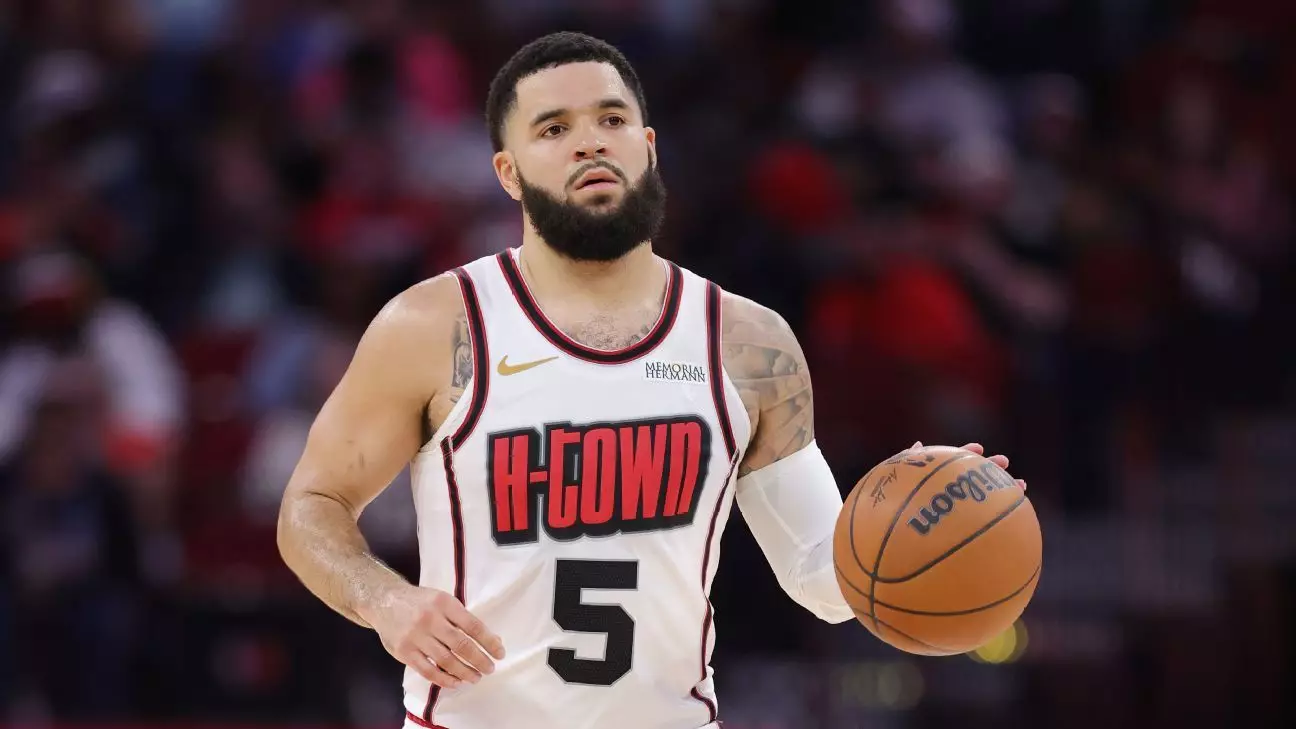In a tense moment during the Houston Rockets’ recent game against the Portland Trail Blazers, guard Fred VanVleet found himself at the center of controversy. With just 4.3 seconds remaining and the Rockets down by five points, VanVleet was whistled for an offensive foul. This decision sent him into a spiraling reaction of frustration directed at the officiating crew. Not only did his words carry weight, leading to a $50,000 fine imposed by the NBA, but the situation culminated in his ejection from the game.
While heated emotions are often part and parcel of professional sports, VanVleet’s actions were particularly notable as they involved direct confrontations with all three officials on the court. His frustration seemed to stem from an earlier no-call on a potential 3-pointer, which he believed was critical at that juncture. Crew chief Courtney Kirkland provided insight after the game, revealing that a review indicated a foul should have indeed been called, which might have altered the game’s trajectory for VanVleet and his team.
Officiating in high-pressure situations can often lead to moments of contention. Players’ tempers flare, and in VanVleet’s case, it became evident that the perceived juxtaposition of officiating failure and the crucial nature of the game contributed to his emotional outburst. His ejection underscores a larger issue in the league: how players manage their frustrations and the ways these frustrations can manifest. While emotion is certainly welcome in competitive sports, there must be boundaries for expression, especially during critical moments of a game.
Video reviews have been a topic of discussion in the league for several seasons. While they aim to correct officiating mistakes, the outcome of a review can leave both players and fans alike questioning the integrity of a game. In this case, had the correct call been made earlier, another series of events—a potential tie after free throws—might have taken place, altering the game’s final scoreline significantly.
Fred VanVleet is no stranger to the consequences of his actions on the court. Now in his ninth season, he ranks among the leading scorers for the Rockets. His performance, averaging 14.5 points and 6.1 assists per game, speaks to his value as an athlete. However, this incident exemplifies the dual nature of his role; as a leader on the court, he must also navigate the emotional landscape that comes with the territory of high-stakes basketball.
This situation opens up broader discussions concerning the repercussions of emotional outbursts in sports. For VanVleet, the $50,000 fine represents not only a financial penalty but also the potential impact on his reputation as a player capable of managing pressure. Moving forward, it is crucial for him and others in similar positions to temper their frustrations to avoid falling into patterns that could detract from their overall performance and leadership qualities.
Ultimately, VanVleet’s unfortunate ejection is a pivotal learning moment. It serves as a reminder that while passion and intensity are vital components of professional sports, they must be channeled constructively. Players play a critical role in setting the tone for fair play and sportsmanship on the court. As the NBA season progresses, both VanVleet and the league itself may benefit from a reevaluation of how best to handle similarly charged situations, promoting an atmosphere of respect, both for the game and for the individuals who officiate it.

